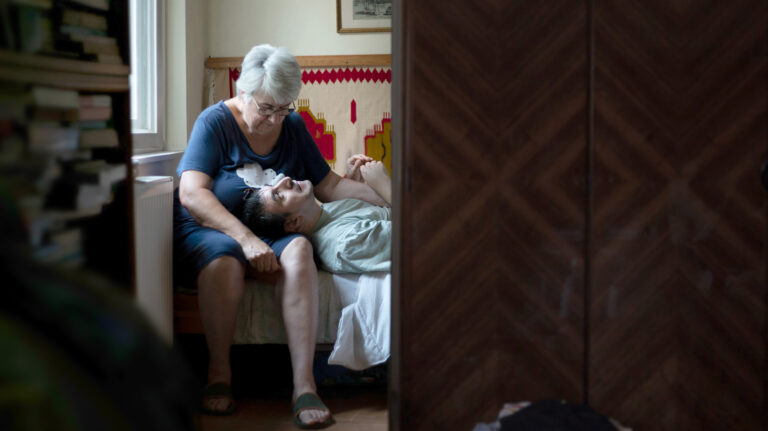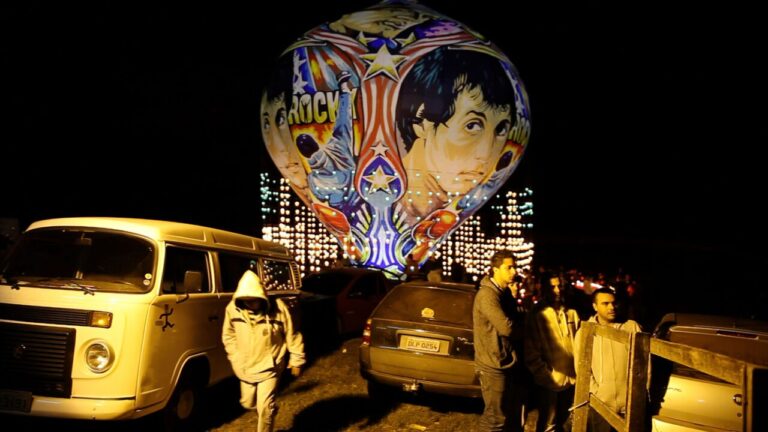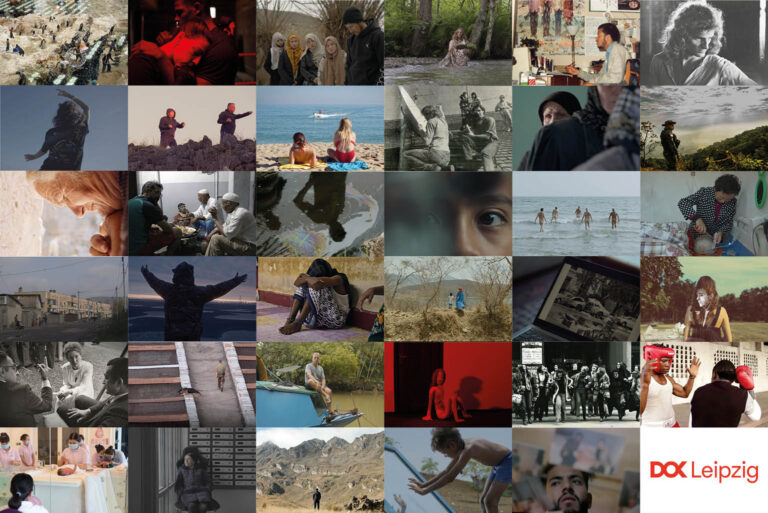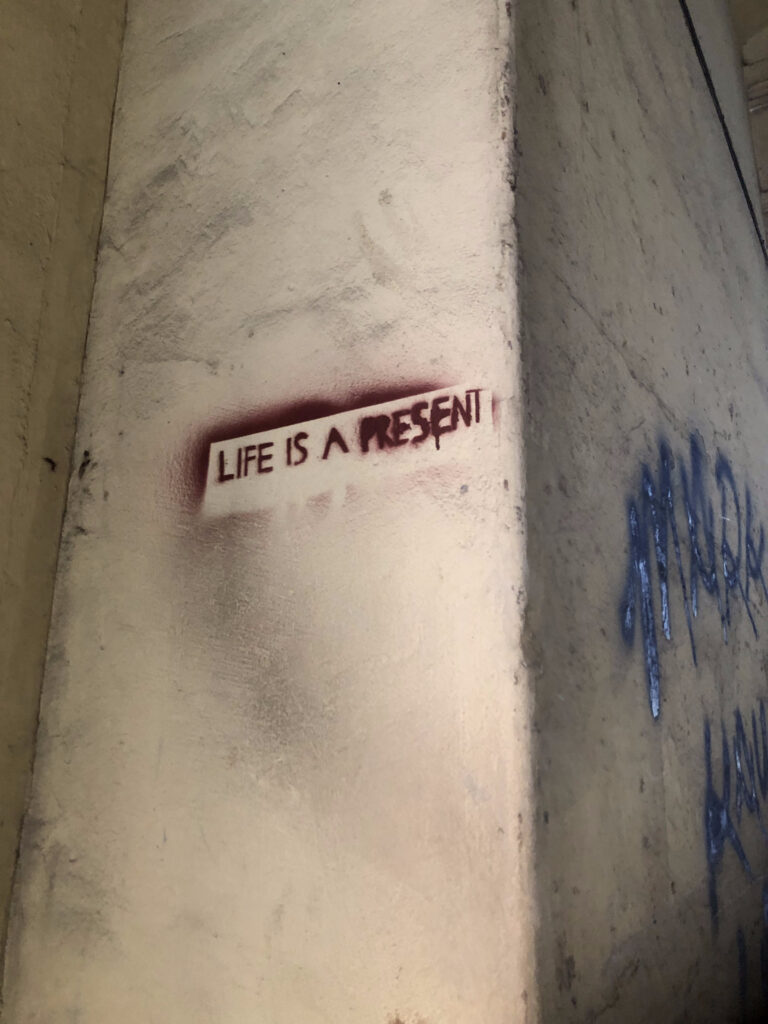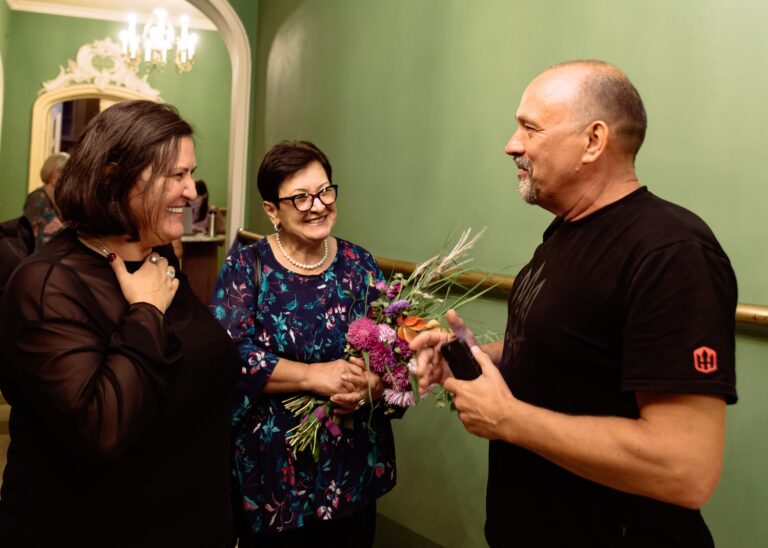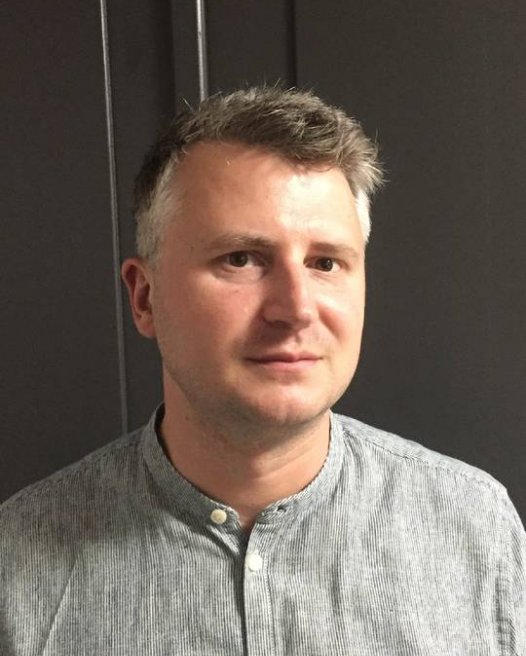Projects explore family stories and various forms of resistance
The 20th edition of the DOK Co-Pro Market welcomes 35 documentary projects from 30 countries that will have the opportunity to find international financing and co-production partners. This year sees a further increase in the number of entries, totalling 366 projects.
This year’s selection features a number of projects that lens intimate family stories to examine broader themes marking nations, from societal shifts to events of profound socio-political consequence, such as civil wars and military conflicts. Joël Jent’s “Rebellion of Memory” zeroes in on a family of three from different camps of Peru’s last armed conflict. In “Kafka in Belgrade” (WT), Maša Nešković trains her lens on her stepfather and notable filmmaker, Goran Marković, navigating the familial ties against the backdrop of Serbia’s turbulent history. Three projects from Algeria offer layered personal narratives, embedded in the country’s troubled history. In “My Dad’s a Farmer”, filmmaker El Kheyer Zidani returns to Algeria, revisiting his family’s struggles during the country’s 90s civil war. The theme of return to Algeria is also dominant in the two French-Algerian co-productions, Camélia Gadhgadhi’s “Bitter Seed” (Amok Films, “Wake Up On Mars”) and Assia Tamerdjent’s “Hana, Algeria and Me”.
Some projects depict liberation struggles and assorted forms of resistance against oppressive forces. In the vein of exploring new ways to tell a larger story, Esther Vital uses animation as a documentary language in her visually striking animation documentary “If I Die” to reveal the horrors of a clandestine torture centre of the Brazilian military dictatorship. Following former pacifists in Myanmar, including a celebrated poet and human rights activist, Aung Naing Soe’s “When a Poet Goes to War” sheds light on the tragic realities of war as they take up arms to fight the military junta. Delving into the theme of activism, “The Wind’s Thirst” by Alejandro Valbuena chronicles the struggle of Wayuu leaders facing the threat of wind turbine installations on their lands. A tonally different but no less critical story is explored in Manuel Inacker’s “The Land We Breathe” (Restart, which was at the Co-Pro Market 2018 with “Museum of the Revolution”) traces the endeavour of a devoted trio trying to protect Dalmatia on the Croatian coast amid the onslaught of tourists and looming climate collapse.
Several titles in this year’s lineup approach the theme of sports as an element of healing, empowerment, and community-building. In Jacopo De Bertoldi and Petna Ndaliko Katondolo’s “Fists of Peace”, former child soldier Kibomango morphs an abandoned stadium into a boxing gym in the DRC’s Goma for war-scarred youths. Kan Muftic’s “Blackbelts” contemplates the human condition and disability, inserting the viewer into the lives of persons, often sidelined by society, as they turn to taekwondo. Another poignant story featuring sports comes from Nupur Agrawal and Shivajee Biswanath. In their project“Downhill Kargil”, unfolding in a remote Himalayan town in India, two Muslim teenage girls are set on playing ice hockey in the face of the changing environmental and socio-political milieu.
Presenting topically different narratives, a number of projects in the selection embrace the theme of music and singing. Walter Fasano’s “Popol Vuh: A Cosmic Journey” takes us on a sonic voyage with the iconic German band of Popol Vuh, using expansive archival material, while Nona Giunashvili’s “Sacred Songs” crafts a choral portrait of four female singers straddling tradition, religion, and artistic expression in a Georgian village. Emotive testimony is at the heart of another project relating to music, Amine Boukhris’ “Solo”, which tells an incomprehensibly personal story of Solo Akmal, a young rapper in Tunisia who was abandoned by his mother to live among Daesh (IS).
This year’s lineup also showcases three compelling documentary series projects: Daphné Leblond and Lisa Billuart-Monet’s “The Free Speech Rises” (Les Films d’Ici, co-produced by Iota Production), Rafael Valdeavellano and Nicolas Acuña’s true crime series “Letelier File” (La Ventana Cine), and Philipp Diettrich and Sara Woldeslassie’s “From Here”.
The selection includes five promising projects that the DOK Industry team scouted at trusted partner training initiatives and film markets: Andrei Kutsila’s “Letters”, Amílcar Patel’s “Africa AI”, Emmanuelle Mayer’s “Woman in White”, Kan Muftic’s “Blackbelts”, and Yuriy Shylov’s “Entr’actes”.
Some of the directors and producers invited to this year’s Co-Pro Market have previously had their projects presented and/or their films screened at DOK Leipzig. Stefilm (Co-Pro Market 2017 with “Exemplary Behaviour”, a Golden Dove winner at DOK Leipzig 2019) is returning to the festival with their new project “Queerinale, Who Will Take Care of Me? by Matteo Castellino, which follows a group of gay seniors in Rome creating a safe space for LGBTQ+ people in difficulty. Filmmaker from the US Milton Guillén (Co-Pro Market 2019 with “On the Move”) will introduce his new project “My Skin and I”, co-directed with Fiona Guy Hall. German filmmaker Marita Stocker (DOK Leipzig 2019 with “What to Do With All This Love”) will return to the festival with her new project “Sitting the Month” (Eikon Media).
The 20th edition continues to see immense international interest from beyond the European borders, welcoming this October directors and producers from the US, five countries from Central and South America, five Asian countries, and five African countries.
The DOK Co-Pro Market 2024 is set to take place from 28 October to 29 October in Leipzig, with complementary online meetings on 5 November.
This year’s selection process was carried out by Jia Zhao (Chinese-Dutch film producer, founder of Muyi Film and Silk Road Film Salon), Marcella Jelić (founder of Split Screen), and Ümit Uludağ (producer and CEO of CORSO), with Brigid O’Shea (director of DAE), Guevara Namer (coordinator of the DOK Co-Pro Market), and Nadja Tennstedt (director of DOK Industry).
Overview of Selected 35 Projects:
Africa AI | Director: Amílcar Patel | South Africa | KAMVA Collective
Bitter Seed | Director: Camélia Gadhgadhi | France, Algeria | Amok Films, Libre Image
Blackbelts | Director: Kan Muftic | Switzerland | PANIMAGE
BOOM! | Director: Laura Plancarte | UK | The Republic of Park Royal, LP Films
Chunyu: A Death Foretold | Director: Fan Yang | China, Canada | Walking in the Mountains, Electric Shadow
Downhill Kargil | Directors: Nupur Agrawal, Shivajee Biswanath | India | AutumnWolves Media
Entr’actes | Director: Yuriy Shylov | Ukraine | Alarm Productions
Fists of Peace | Directors: Jacopo De Bertoldi, Petna Ndaliko Katondolo | Italy, DR Congo | AntropicA, Alkebu
The Free Speech Rises | Directors: Daphné Leblond, Lisa Billuart-Monet | France, Belgium | Les Films d’Ici , Iota Production
From Here | Directors: Philipp Diettrich, Sara Woldeslassie | Germany | PINKY SWEAR FILM
From Radvanka | Director: Tomi Hazhlinsky | Ukraine | Contemporary Ukrainian Cinema
The Gary Project | Director: Luchina Fisher | USA | Little Light Productions
The Goldfather | Director: Decio Matos Jr. | Brazil | CAPURI
Hana, Algeria and Me | Director: Assia Tamerdjent | France, Algeria | Making of Films, Urubu Films
Hope is a Word | Director: Maria Galliani Dyrvik | Norway, Nigeria | Smau media
If I Die | Director: Esther Vital | Brazil, France, Spain | O Par Produções, Marmitafilms, Midralgar
Kafka in Belgrade (WT) | Director: Maša Nešković | Serbia | Marienbad film
The Land We Breathe | Director: Manuel Inacker | Croatia, Germany | Restart
Left Behind | Director: Nasib Mahamud Farah | Denmark | Emjay Productions
Letelier File | Directors: Rafael Valdeavellano, Nicolas Acuña | Chile | La Ventana Cine
Letters | Director: Andrei Kutsila | Poland, Germany | DocEdu Foundation, DOCDAYS Productions
My Dad’s a Farmer | Director: El Kheyer Zidani | Algeria, Germany | Z§K Production, jip Film & Verleih
My Skin and I | Directors: Milton Guillén, Fiona Guy Hall | Nicaragua, Germany, USA | Mayana Films, Solaris Film
not-yet-here | Director: Giorgio Bosisio | Italy | Studio x01
Oh, Heart Don’t Be Afraid | Director: Ana Kvichidze | Georgia, Germany | Moonbow Production, parabellum film
Popol Vuh: A Cosmic Journey| Director: Walter Fasano | USA | Good ‘n Proper
Queerinale, Who Will Take Care of Me? | Director: Matteo Castellino | Italy | Stefilm International
Rebellion of Memory | Director: Joël Jent | Switzerland, France, Peru | Aaron Film, Les Films d’Ici, Amazona Producciones
Sacred Songs | Director: Nona Giunashvili | Georgia | 17|07 Productions
Sitting the Month | Director: Marita Stocker | Germany | eikon media
Solo | Director: Amine Boukhris | Tunisia, France, Qatar | Donia Films, Dynamo Production
Umbrellas of the Acrobats | Director: Mukesh Subramaniam | India | Elsewhat
When a Poet Goes to War | Director: Aung Naing Soe | Thailand, Hong Kong | Singing Cicadas, 101fps
The Wind’s Thirst | Director: Alejandro Valbuena | Colombia | Curare Films
Woman in White | Director: Emmanuelle Mayer | Israel | Emmanuelle Mayer Films
The complete schedule for DOK Industry, including all dates, will be published on 26 September.







